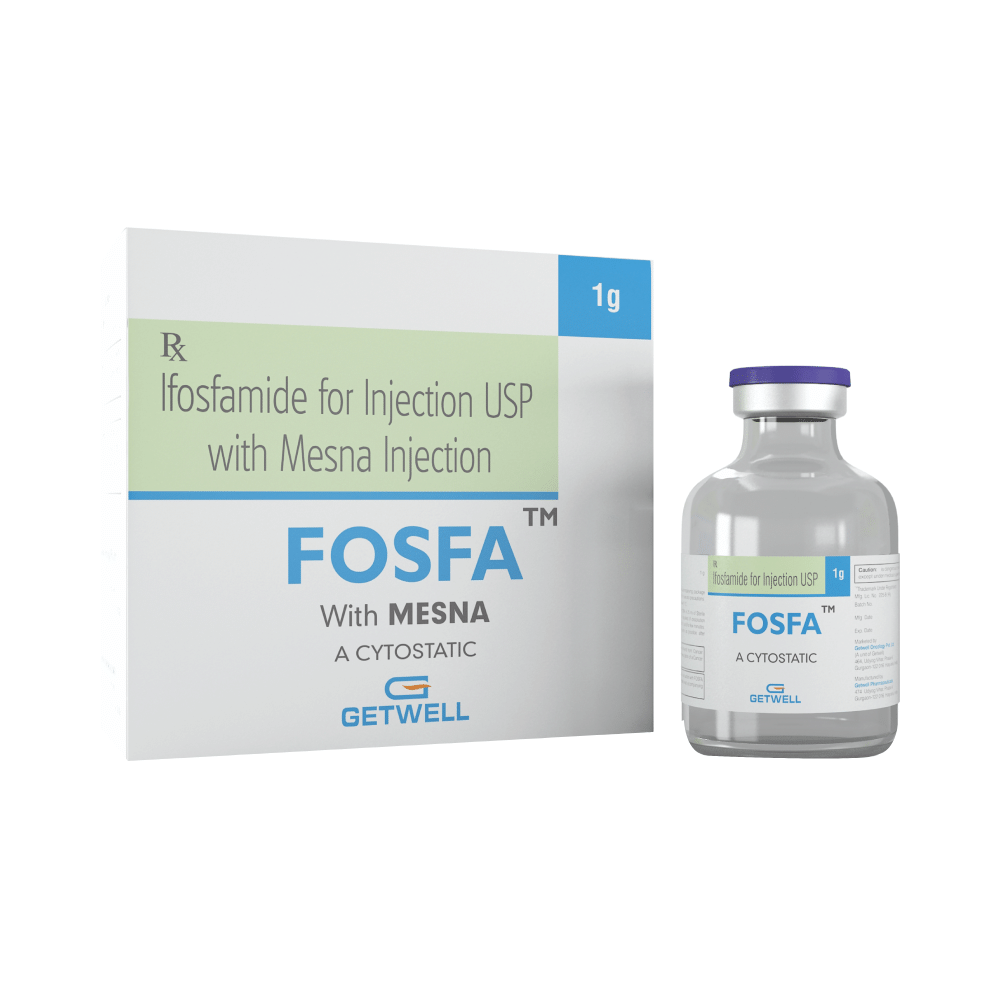
Fosfa 1gm Injection
Salt Composition
Ifosfamide (1gm)
Key Information
Short Description
Fosfa 1gm Injection is used to treat different kinds of cancers, given alone or in combination with other chemotherapy medicines, radiotherapy, and surgery.
Dosage Form
Injection
Introduction
Fosfa 1gm Injection is usually given as a slow infusion (drip) into a vein (intravenously) over several hours. Your doctor will decide what dose is necessary and how often you need to take it. This will depend on what you are being treated for and may change from time to time. You should take it exactly as your doctor has advised. Taking it in the wrong way or taking too much can cause very serious side effects. It may take several weeks or months for you to see or feel the benefits but do not stop taking it unless your doctor tells you to. It is advised that you drink extra fluids so that you pass more urine. This will help prevent bladder and kidney problems and keep your kidneys working well.
Directions for Use
Your doctor or nurse will give you this medicine. Kindly do not self-administer.
Safety Information
Side Effects
nausea vomiting anemia (low number of red blood cells) hair loss decreased white blood cells count
Breastfeeding Warning
It is not recommended during pregnancy or while breastfeeding. It may harm your baby. You and your partner should avoid becoming pregnant or fathering a child for several months after your treatment with it has stopped.
Pregnancy Warning
It is not recommended during pregnancy or while breastfeeding. It may harm your baby. You and your partner should avoid becoming pregnant or fathering a child for several months after your treatment with it has stopped.
How it works
Fosfa 1gm Injection is an anti-cancer medication. It works by damaging the genetic material (DNA and RNA) of the cancer cells. This stops their growth and multiplication.
Quick Tips
Fosfa 1gm Injection is used in combination with other chemotherapy medicines radiotherapy and surgery to treat cancer of blood, breast, lung, ovaries, pancreas, testes, and lymph nodes. It is usually given as a slow infusion (drip) into a vein (intravenously) over several hours. Drink plenty of fluids while taking this medication to minimise damage to your bladder and kidneys. It may cause dizziness and sleepiness. Don't drive or do anything that requires mental focus until you know how it affects you. Use effective measures to avoid pregnancy during treatment with this medicine and for at least 6 months after your last dose as it can be harmful to an unborn baby. Your doctor may have your blood tested regularly to monitor your kidney, liver function, and levels of blood cells in your blood.
Related Medicines



